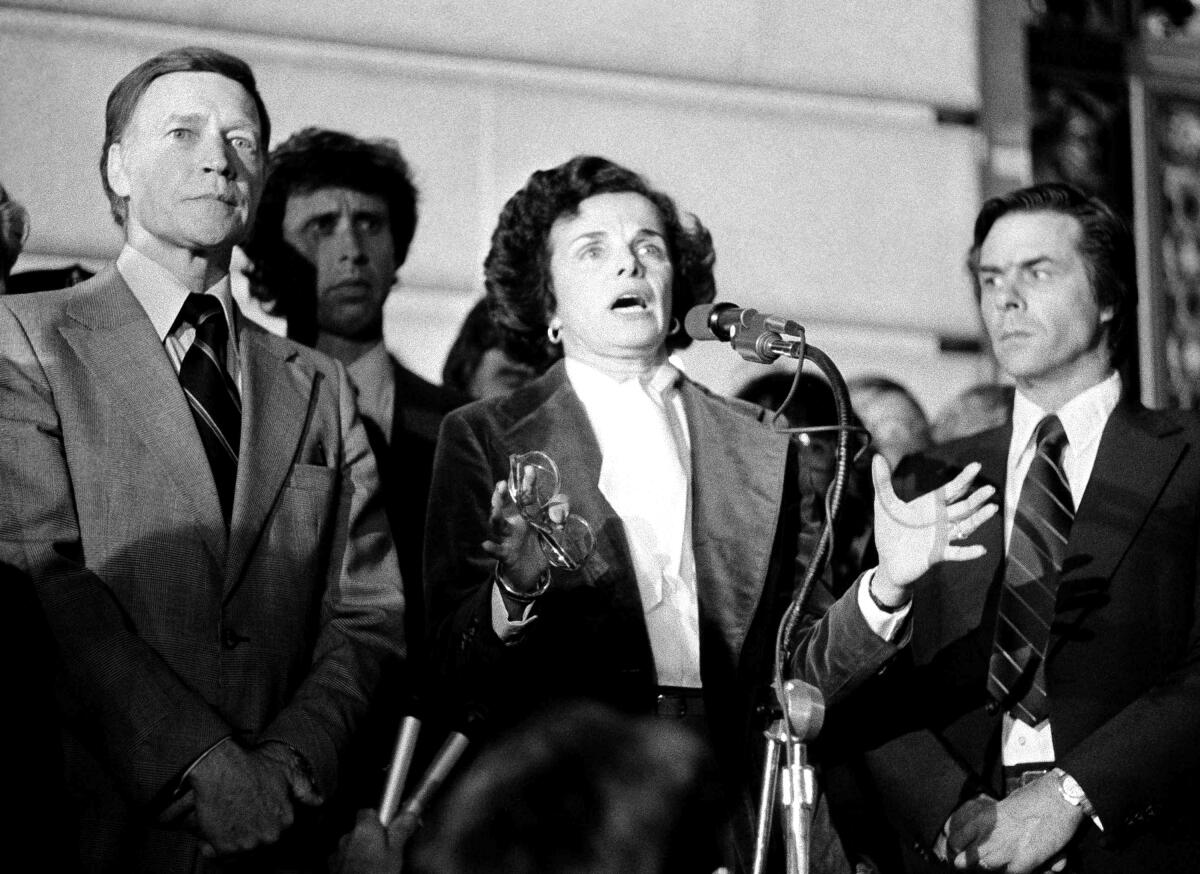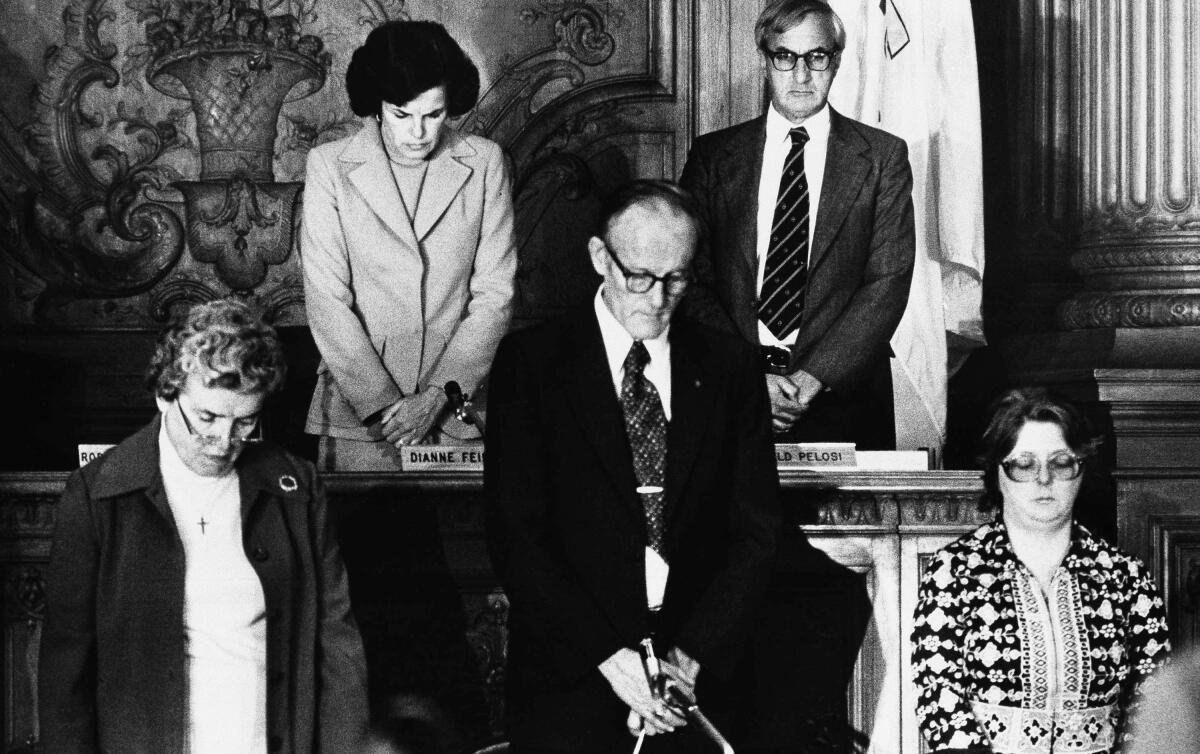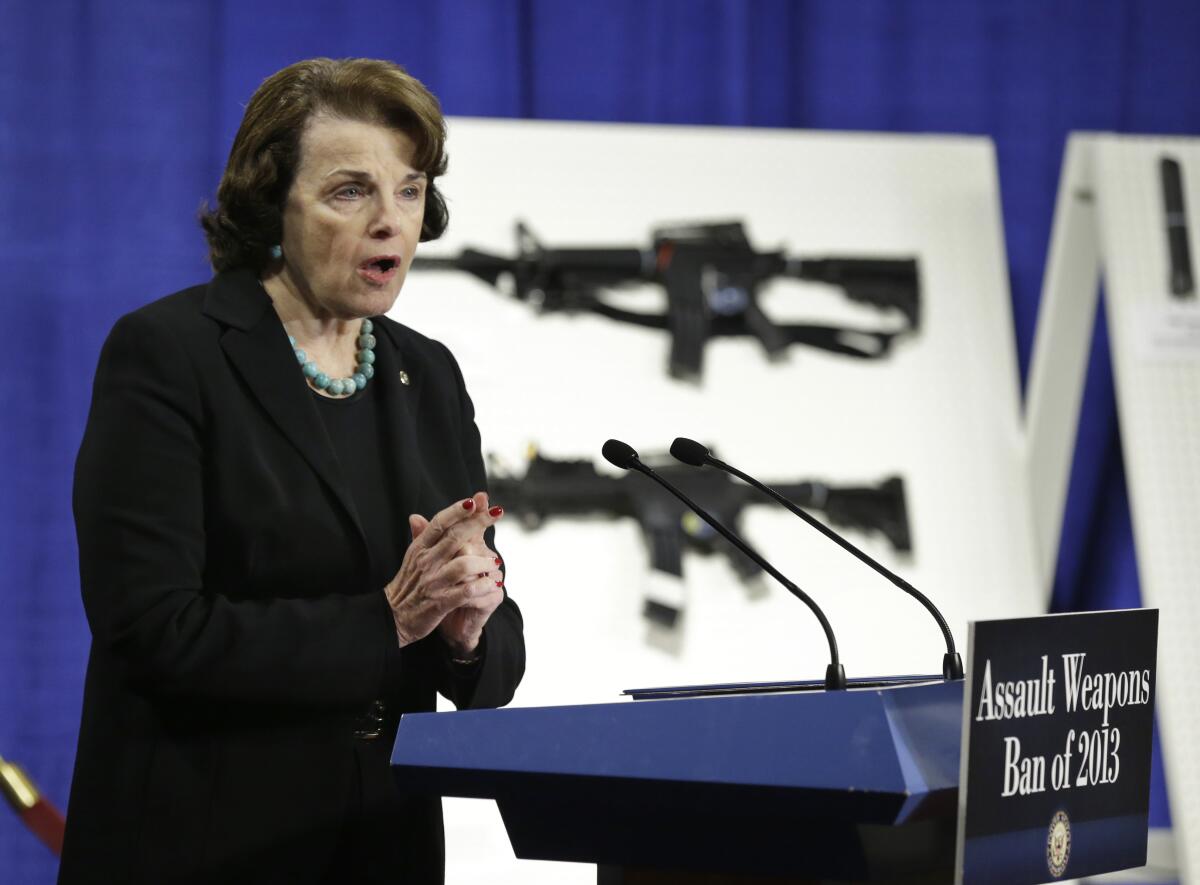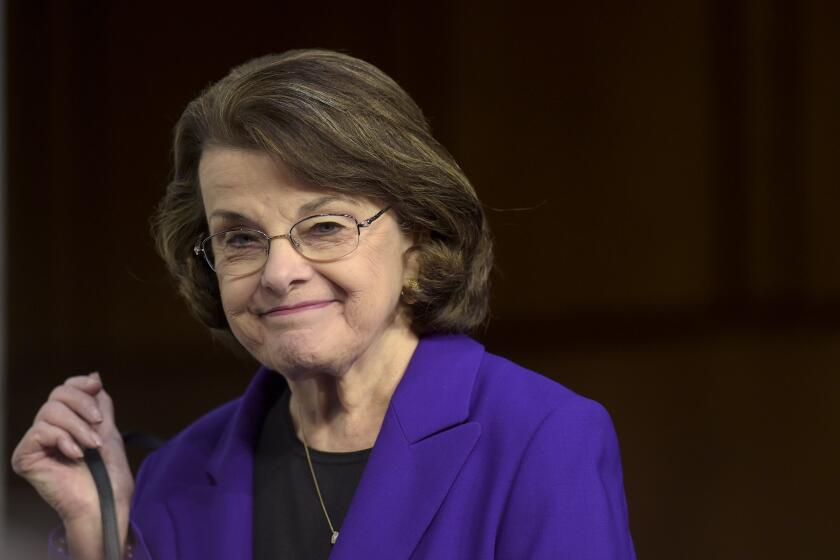The shocking San Francisco assassinations that forged Feinstein’s political path

The killings took only a few seconds. Two bullets to the head apiece and five to the bodies. Neither victim had a chance.
On a cool November morning in 1978, Dan White strapped on a gun, slipped into City Hall and assassinated Mayor George Moscone and Supervisor Harvey Milk. It was an act of personal and political vengeance that shocked the nation and plunged San Francisco into a tailspin from which it has taken years to recover.
So wrote the Los Angeles Times in describing one of the most shocking acts of political violence in California.
Dianne Feinstein was president of the county Board of Supervisors at the time. She was in City Hall when the killing occurred.
Sen. Dianne Feinstein survived an assassination attempt and a mayoral recall to become the most popular politician in California for years running.
The assassination and its aftermath helped propel Feinstein to the San Francisco mayor’s office and into national politics. Much of it was tied to a news conference she gave announcing Moscone and Milk’s deaths, a video she would later include in campaign ads that politicos have long described as among the most effective they have ever seen.

Times political writer Keith Love described the ads this way in 1990:
It is the Nov. 27, 1978, press conference at which Feinstein took charge of San Francisco after announcing that Mayor George Moscone and Supervisor Harvey Milk had been assassinated by an angry former supervisor.
The angle of the TV camera is from somewhere below and in front of the crush of grim-faced people surrounding Feinstein at the post-assassination press conference. She looks taut but calm as she says, “Both Mayor Moscone and Supervisor Harvey Milk have been shot . . . and killed.”
There are groans. A woman screams.
And then the ad’s narrator — whose “urgent” voice was used several years ago in ads for the gritty Vietnam War film “Platoon” — intones, “Forged from tragedy, her leadership brought San Francisco together.”
Dianne Feinstein was settling into her office at San Francisco City Hall after a two-week vacation in the Himalayas.
Feinstein discovered Milk dead in his office just after Dan White killed him. She described the scene to the San Francisco Chronicle in 2008:
“I went down the hall. I opened the wrong door. I opened [Milk’s] door. I found Harvey on his stomach. I tried to get a pulse and put my finger through a bullet hole. He was clearly dead... I remember it, actually, as if it was yesterday. And it was one of the hardest moments, if not the hardest moment, of my life. It was a devastating moment. For San Francisco, it was a day of infamy.”
“I could smell the gunpowder,” Feinstein told The Times in an interview.

She said moments earlier she had seen White walking by but he ignored her when she called out.
White had resigned as supervisor 17 days before the murders, saying he needed to devote more time to his private business. But shortly after he quit, White asked Moscone for his job back. Moscone refused, and Milk supported that decision.
White used a controversial diminished-capacity defense — claiming his addiction to junk food affected his judgment — and he was convicted of manslaughter. He killed himself in 1985.
Feinstein said the assassinations forged her decades-long efforts on behalf of gun control in the U.S. Senate.
She is perhaps best known for her quest over 25 years in Congress to enact stricter national gun control, including authoring the now-expired original assault weapons ban.
“It’s an issue that has framed and really bookended her career,” Jerry Roberts, a former San Francisco Chronicle editor and author of “Dianne Feinstein: Never Let Them See You Cry,” told The Times in 2018. “It definitely speaks to her perseverance and endurance, which are two of the strongest characteristics she has as a politician that have served her and really enabled her longevity.”
More to Read
Sign up for Essential California
The most important California stories and recommendations in your inbox every morning.
You may occasionally receive promotional content from the Los Angeles Times.











